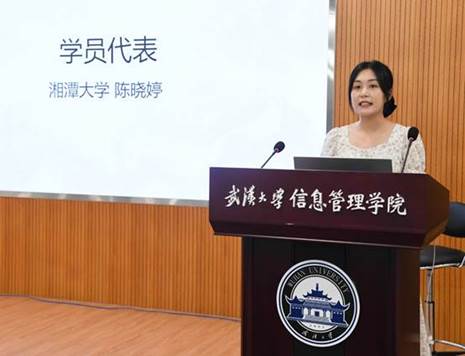On the morning of July 16, the 2021 Graduate Summer School of Archives and Government Affairs Intelligence of Wuhan University, sponsored by the SIM, and undertaken by the Department of Archives and Government Affairs Informatics,completed the established course arrangement and came to a successful conclusion.
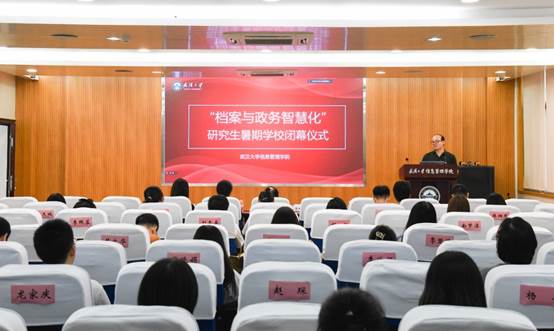
The summer school opened on the morning of July 10. Yongjun Xu, Professor at the School of Information Resource Management, Renmin University of China, brought the first lecture to the students. Starting from the world situation, national conditions and file situation, he expounded ten development trends, such as file governance according to law, file governance, people-oriented, digital transformation, data assets, science and technology leadership, cultural memory, security risk, service outsourcing and global management, and provided an accurate interpretation of the future development of archives discipline.
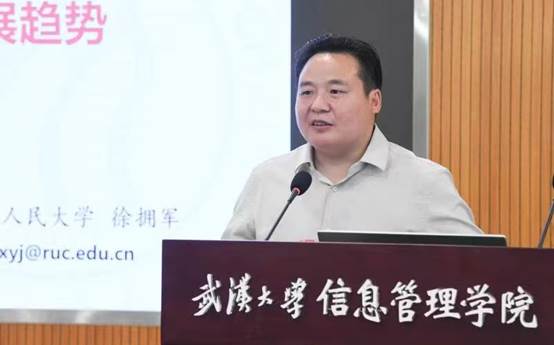
Li Niu, Associate Professor at the School of Information Resource Management, Renmin University of China, expounded the development trend and cutting-edge application of archival knowledge engineering from five aspects: future direction, concept and definition, management object, development means and platform application, which provided a new idea for the development and utilization of archival data resources.
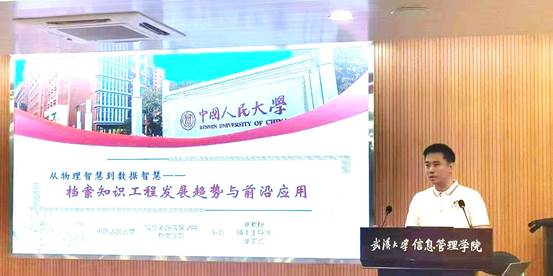
Starting from the three basic elements of obtaining data, analyzing data and using data, Daoling Yang, Researcher at the State Information Center (Administration Center of China E-government Network), combined with specific application scenarios, explained the methods and ideas of government big data analysis for students via rich data and cases, and transmitted the concept of data creating value and innovation leading the future.
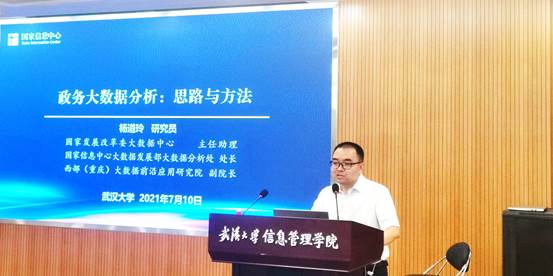
Bo Jin, Professor at the Department of Library, Information and Archives, Shanghai University, starting from the era background of the formation of archival data, expounded the connotation, characteristics and influence of archival data, shared archival data management strategies, and deeply inspired the students.
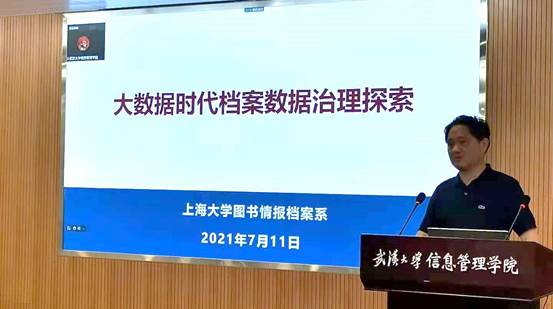
Yi Qian, Professor at the School of Information Resource Management, Renmin University of China, introduced the theory of three states and two transformations, compared the archive management objects of analog state, digital state and data state, and illustrated how to change from digital to digitization. He also summarized the basic strategies for long-term preservation of data archives, and introduced three viewpoints of archives resources (collection viewpoint, memory viewpoint and data viewpoint), which impressed the students deeply.
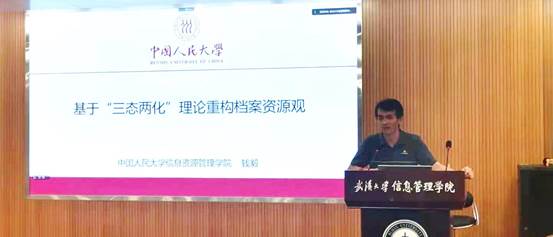
Qiuhui Xiao, Professor at the School of Information Management, Wuhan University, introduced the electronic document management strategy of typical foreign countries, typical international policies and strategies for long-term preservation of electronic documents, organization's long-term preservation maturity model and evaluation index system, and put forward unique opinions on the current situation and future of electronic document management in China.
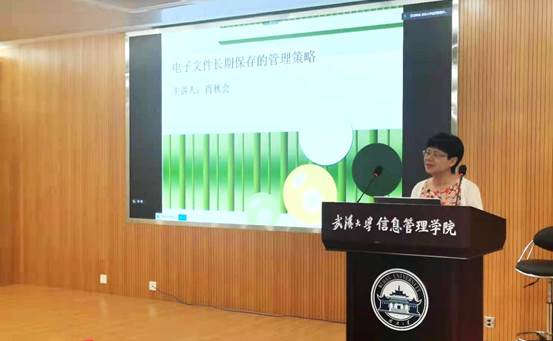
Weidong Zhang, Professor at the School of Management, Jilin University, starting from the research on digital humanities from the perspective of archives, clarified the basic categories, constituent elements and research significance of digital humanities in archives, stressed the importance of combing the relationship between digital humanities and archival science, summarized the problems to be aware in the research on digital humanities in archives, and widened the students' academic vision.
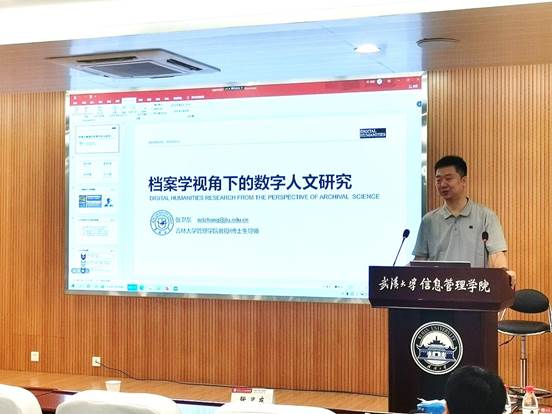
He Zhao, Researcher at the Chinese Academy of Sciences, proposed that there are ABCD technologies in the new era, namely Artificial Intelligence (AI), Block Chain, Cloud Computing and Data Science. For Block Chain+archives and Block Chain+government, He Zhao believed that it was necessary to accelerate the construction of digital archives and introduce Block Chain technology to ensure archives security, which provided new research ideas for students.
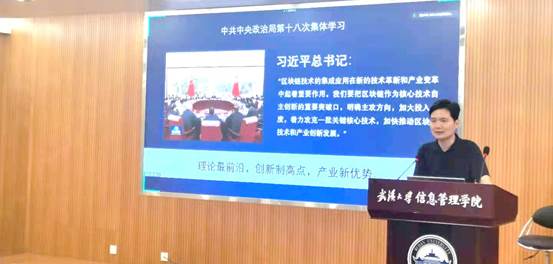
Starting from the macro background of the National Archives Development Plan in the 14th Five-year Planjointly issued by the General Office of the CPC Central Committee and the General Office of the State Council of the People's Republic of China, Ping Wang, Professor at the School of Information Management, Wuhan University, introduced to the students the great importance attached by the current national strategic level to archives informatization. He showed the students the application of AI and Block Chain technologies in the field of archives via the Archives Intelligent Service Platform.
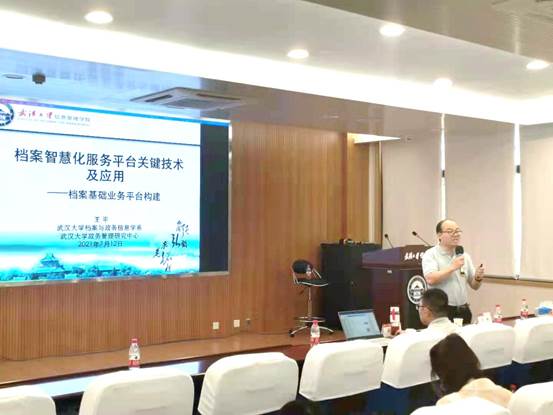
Lei Zheng, Professor at the School of International Relations and Public Affairs, Fudan University, explained how to realize the validity, temperature and scale of digital governance through vivid examples, which provided new insights for students to scientifically grasp the application of data governance in practice.
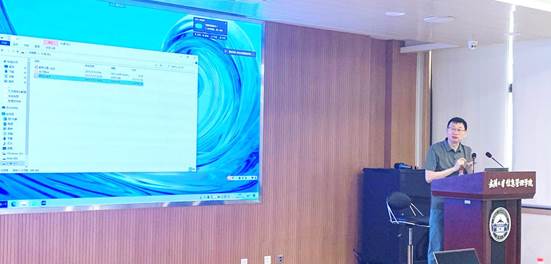
Yikun Xia, Professor at the School of Information Management, Wuhan University, introduced the concept, connotation, development and characteristics of data asset management. Combined with the practice of data asset management at home and abroad, she summarized the current problems and countermeasures, so that the students had a deeper understanding of data asset management.
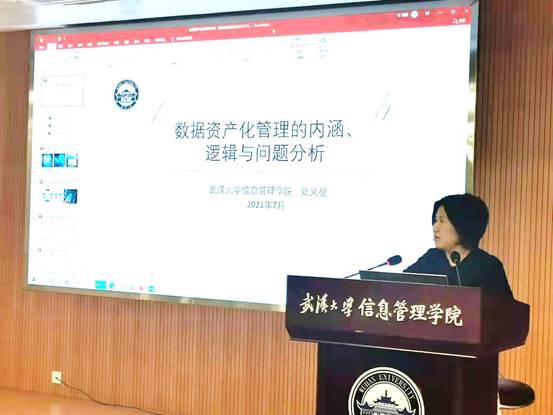
Starting from the goal of serving the national strategy, Yujue Wang, Associate Professor at the School of Information Management, Wuhan University, emphasized that archival research should think about how to apply the research results to practical work, so that personal research can contribute to the development of the country and give full play to the important role of archival discipline.
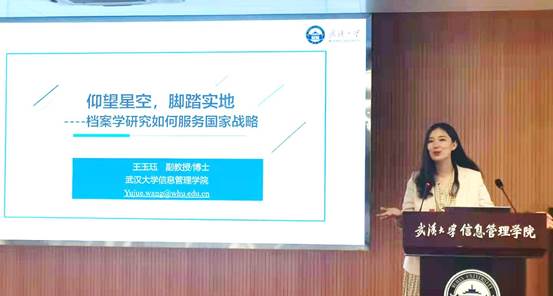
Jiming Hu, Associate Professor at the School of Information Management, Wuhan University, introduced the computability of text analysis in simple terms. Combined with his team's current research results, he explained the methods of policy text analysis and application at home and abroad, providing new insights and methods for archival research.
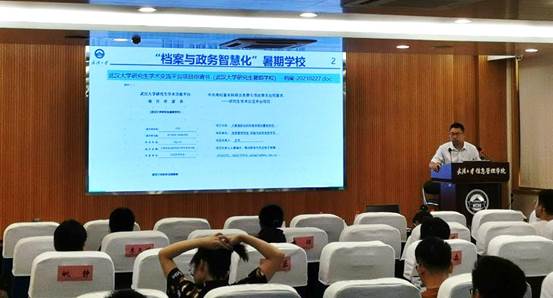
From the perspective of innovative methodology and combined with the latest research results, Qikai Cheng, Associate Professor at the School of Information Management, Wuhan University, introduced the application of neural network image processing, neural network natural language processing, document layout analysis, automatic question and answer, information extraction, automatic summarization and other technologies in semantic mining.
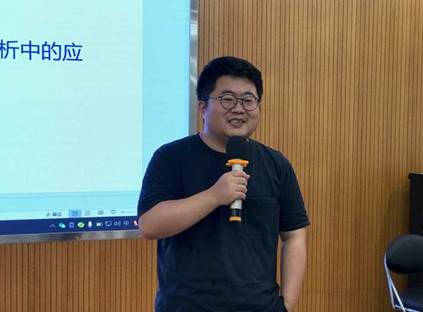
Combined with the comparison and contrast of ancient and modern landscape paintings, Ziyang Weng, Associate Professor at the School of Information Management, Wuhan University, creatively introduced how to excavate the multi-elements from mountain and river paintings and discover civilization, and expounded in detail the application of archives in the process of cartography and compilation.
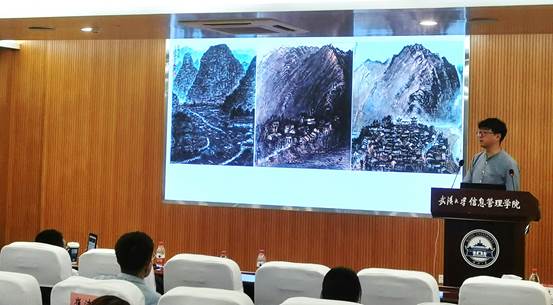
In view of the newly revised Archives Law, Zongchun Li, Research Librarian at Hubei Provincial Archives, put forward his own thinking. He proposed that we should fully understand the significance of the revision of the Archives Law, understand the main contents of the revision, and grasp the spiritual essence of the revision. Combined with his work practice, he also briefly analyzed several illegal cases of archives, so that the students turned their perspective to the actual work of archives, and provided valuable experience for the implementation of archival research.
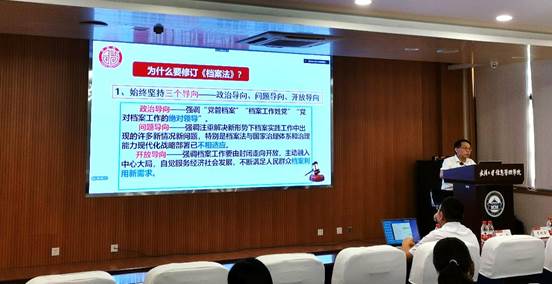
Huang Huang, Associate Professor at the School of Government, Peking University, introduced digital government from both macro and micro perspectives. Starting from the organizational level and national governance level, with the help of rich examples, he expounded the information capacity needed in the process of digital government construction. He also raised the core issues of efficiency, security and fairness faced by digital government.
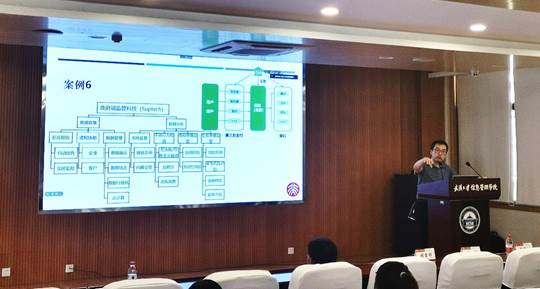
Yaolin Zhou, Professor at the School of Information Management, Wuhan University, focused on archives protection and emphasized the safety bottom line in archives protection. Through actual case analysis and personal experience, he described the rise, development and innovation of archives protection, analyzed the value of archives layer by layer, focused on the reasons for the destruction of archives, put forward the "six views" of archives protection, and brought a vivid and interesting archives protection course to the students.
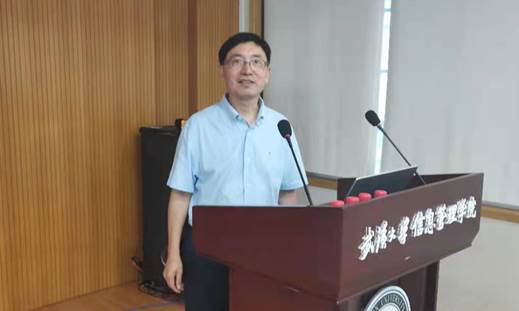
On July 16, the students ushered in the last lesson of summer school. Xiaochun Liu, Research Librarian and Deputy Director at Hubei Provincial Archives, explained to the students the three trends of archives work - management according to law, opening up and modernization. He explained the new development concepts in archival work - innovative development, coordinated development, green development, openness and sharing, showed the students the archival projects of Hubei Provincial Archives, and let the students have a certain understanding of the work contents of provincial archives.
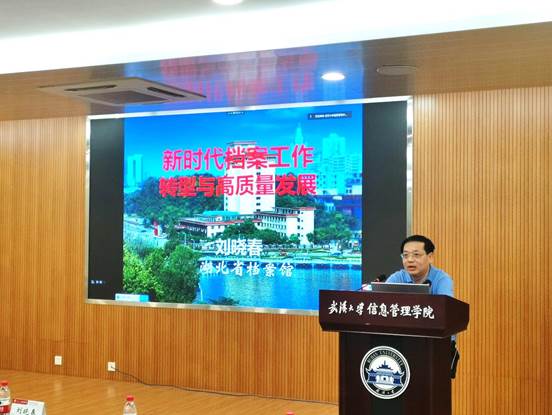
So far, all the 7-day summer school courses have been completed, and 19 experts and scholars have combined the theory and practice of the courses, bringing the latest theoretical research in the academic community and cutting-edge technology application in the industry, presenting an academic feast for 51 graduate students from 33 universities to study in the classroom, The online and onsite students were full of enthusiasm and positive spirit in every class. At the closing ceremony, the summer school also issued Completion certificates for all students and Outstanding Student certificates for students with excellent performance.
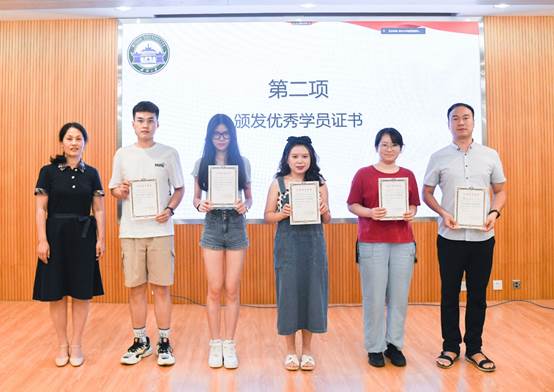

Although the 7-day intensive study was short, it left a deep impression on the students and brought a lot of thinking. As Xiaoting Chen, representative of outstanding students and student from Xiangtan University, expressed at the closing ceremony that Archival Science plays an indispensable and important role in the integration of disciplines. Archival students should jointly undertake the mission of developing and expanding the Archival discipline; They should go deep into the grass-roots level of archives and focus on solving the pain points in the field of archives; They should cultivate the feelings of home and country and contribute to the strength of China in international activity.
